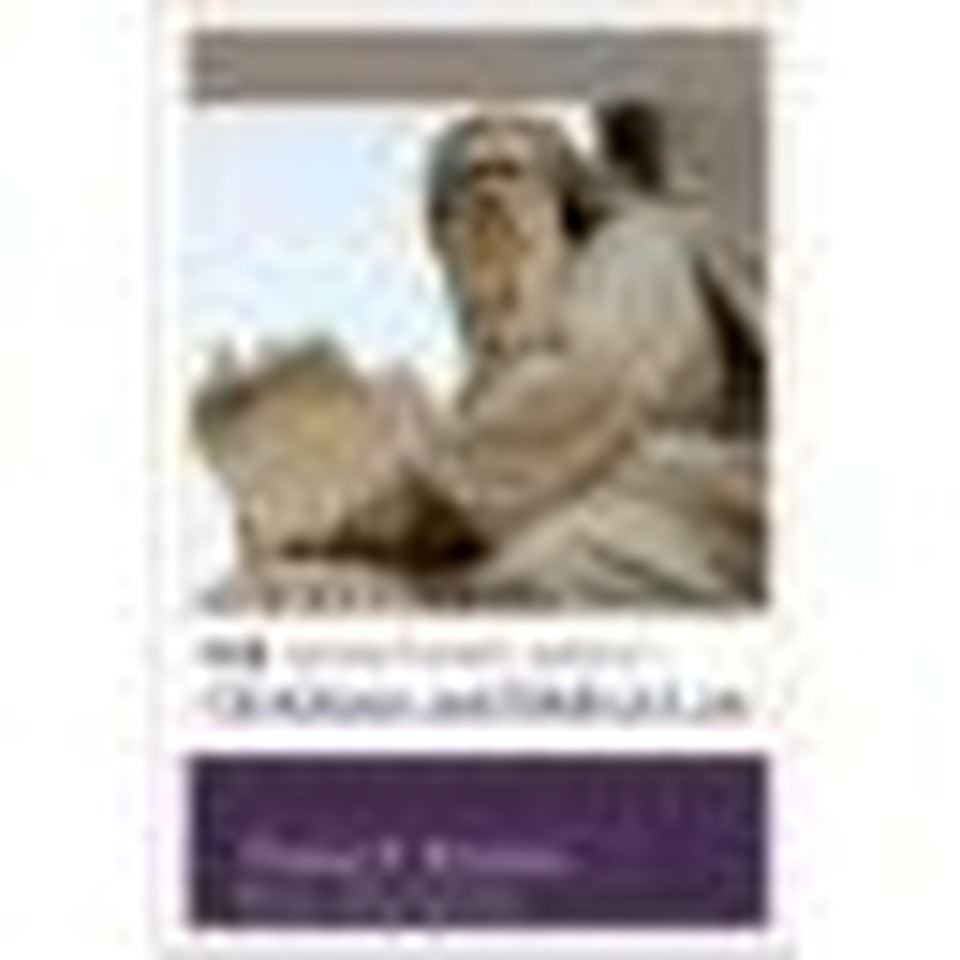Is the Sabbath Still Required for Christians?

EDITOR'S NOTE: The following is an excerpt from 40 Questions about Christians and Biblical Law by Thomas R. Schreiner (Kregel Academic & Professional).
Believers today continue to dispute whether the Sabbath is required. The Sabbath was given to Israel as a covenant sign, and Israel was commanded to rest on the seventh day. We see elsewhere in the Old Testament that covenants have signs, so that the sign of the Noahic covenant is the rainbow (Gen. 9:8-17) and the sign of the Abrahamic covenant is circumcision (Gen. 17). The paradigm for the Sabbath was God's rest on the seventh day of creation (Gen. 2:1-3). So, too, Israel was called upon to rest from work on the seventh day (Exod. 20:8-11; 31:12-17). What did it mean for Israel not to work on the Sabbath? Figure 5 lists the kinds of activities that were prohibited and permitted.
The Sabbath was certainly a day for social concern, for rest was mandated for all Israelites, including their children, slaves, and even animals (Deut. 5:14). It was also a day to honor and worship the Lord. Special burnt offerings were offered to the Lord on the Sabbath (Num. 28:9-10). Psalm 92 is a Sabbath song that voices praise to God for his steadfast love and faithfulness. Israel was called upon to observe the Sabbath in remembrance of the Lord's work in delivering them as slaves from Egyptian bondage (Deut. 5:15). Thus, the Sabbath is tied to Israel's covenant with the Lord, for it celebrates her liberation from slavery. The Sabbath, then, is the sign of the covenant between the Lord and Israel (Exod. 31:12-17; Ezek. 20:12-17). The Lord promised great blessing to those who observed the Sabbath (Isa. 56:2, 6; 58:13-14). Breaking the Sabbath command was no trivial matter, for the death penalty was inflicted upon those who intentionally violated it (Exod. 31:14-15; 35:2; Num. 15:32-36), though collecting manna on the Sabbath before the Mosaic law was codified did not warrant such a punishment (Exod. 16:22-30). Israel regularly violated the Sabbath—the sign of the covenant—and this is one of the reasons the people were sent into exile (Jer. 17:21-27; Ezek. 20:12-24).
FIGURE 5A: WORK PROHIBITED ON THE SABBATH
Kindling a fire Exod. 35:3
Gathering manna Exod. 16:23-29
Selling goods Neh. 10:31; 13:15-22
Bearing burdens Jer. 17:19-27
FIGURE 5B: ACTIVITIES PERMITTED ON THE SABBATH
Military campaigns Josh. 6:15; 1 Kings 20:29; 2 Kings 3:9
Marriage feasts Judg. 14:12-18
Dedication feasts 1 Kings 8:65; 2 Chron. 7:8-9
Visiting a man of God 2 Kings 4:23
Changing temple guards 2 Kings 11:5-9
Preparing showbread and putting it out 1 Chron. 9:32
Offering sacrifices 1 Chron. 23:31; Ezek. 46:4-5
Duties of priests and Levites 2 Kings 11:5-9; 2 Chron. 23:4, 8
Opening the east gate Ezek. 46:1-3
During the Second Temple period, views of the Sabbath continued to develop. It is not my purpose here to conduct a complete study. Rather, a number of illustrations will be provided to illustrate how seriously Jews took the Sabbath. The Sabbath was a day of feasting and therefore a day when fasting was not appropriate (Jdt. 8:6; 1 Macc. 1:39, 45). Initially, the Hasmoneans refused to fight on the Sabbath, but after they were defeated in battle they changed their minds and began to fight on the Sabbath (1 Macc. 2:32-41; cf. Josephus, Jewish Antiquities 12.274, 276-277). The author of Jubilees propounds a rigorous view of the Sabbath (Jubilees 50:6-13). He emphasizes that no work should be done, specifying a number of tasks that are prohibited (50:12-13). Fasting is prohibited since the Sabbath is a day for feasting (50:10, 12). Sexual relations with one's wife also are prohibited (50:8), though offering the sacrifices ordained in the law are permitted (50:10). Those who violate the Sabbath prescriptions should die (50:7, 13). The Sabbath is eternal, and even the angels keep it (2:17-24). Indeed, the angels kept the Sabbath in heaven before it was established on earth (2:30). All Jewish authors concur that God commanded Israel to literally rest, though it is not surprising that Philo thinks of it as well in terms of resting in God (Sobriety, 1:174) and in terms of having thoughts of God that are fitting (Special Laws, 2:260). Philo also explains the number seven symbolically (Moses, 2:210).
The Qumran community was quite strict regarding Sabbath observance, maintaining that the right interpretation must be followed (CD 6:18; 10:14-23). Even if an animal falls into a pit it should not be helped on the Sabbath (CD 11:13-14), something Jesus assumes is permissible when talking to the Pharisees (Matt. 12:11). In the Mishnah thirty-nine different types of work are prohibited on the Sabbath (m. Shabbat 7:2).
I do not believe the Sabbath is required for believers now that the new covenant has arrived in the person of Jesus Christ. I should say, first of all, that it is not my purpose to reiterate what I wrote about the Sabbath in the Gospels since the Sabbath texts were investigated there. Here it is my purpose to pull the threads together in terms of the validity of the Sabbath for today. Strictly speaking, Jesus does not clearly abolish the Sabbath, nor does he violate its stipulations. Yet the focus on regulations that is evident in Jubilees, Qumran, and in the Mishnah is absent in Jesus' teaching. He reminded his hearers that "the Sabbath was made for man, not man for the Sabbath" (Mark 2:27). Some sectors of Judaism clearly had lost this perspective, so that the Sabbath had lost its humane dimension. They were so consumed with rules that they had forgotten mercy (Matt. 12:7). Jesus was grieved at the hardness of the Pharisees' hearts, for they lacked love for those suffering (Mark 3:5).
Jesus' observance of the Sabbath does not constitute strong evidence for its continuation in the new covenant. His observance of the Sabbath makes excellent sense, for he lived under the Old Testament law. He was "born under the law" as Paul says (Gal. 4:4). On the other hand, a careful reading of the Gospel accounts intimates that the Sabbath will not continue to play a significant role. Jesus proclaims as the Son of Man that he is the "lord even of the Sabbath" (Mark 2:28). The Sabbath does not rule over him, but he rules over the Sabbath. He is the new David, the Messiah, to whom the Sabbath and all the Old Testament Scriptures point (Matt. 12:3-4). Indeed, Jesus even claimed in John 5:17 that he, like his Father, works on the Sabbath. Working on the Sabbath, of course, is what the Old Testament prohibits, but Jesus claimed that he must work on the Sabbath since he is equal with God (John 5:18).
It is interesting to consider here the standpoint of the ruler of the synagogue in Luke 13:10-17. He argued that Jesus should heal on the other six days of the week and not on the Sabbath. On one level this advice seems quite reasonable, especially if the strict views of the Sabbath that were common in Judaism were correct. What is striking is that Jesus deliberately healed on the Sabbath. Healing is what he "ought" (dei) to do on the Sabbath day (Luke 13:16). It seems that he did so to demonstrate his superiority to the Sabbath and to hint that it is not in force forever. There may be a suggestion in Luke 4:16-21 that Jesus fulfills the Jubilee of the Old Testament (Lev. 25). The rest and joy anticipated in Jubilee is fulfilled in him, and hence the rest and feasting of the Sabbath find their climax in Jesus.
We would expect the Sabbath to no longer be in force since it was the covenant sign of the Mosaic covenant, and, as I have argued elsewhere in this book, it is clear that believers are no longer under the Sinai covenant. Therefore, they are no longer bound by the sign of the covenant either. The Sabbath, as a covenant sign, celebrated Israel's deliverance from Egypt, but the Exodus points forward, according to New Testament writers, to redemption in Christ. Believers in Christ were not freed from Egypt, and hence the covenant sign of Israel does not apply to them.
It is clear in Paul's letters that the Sabbath is not binding upon believers. In Colossians Paul identifies the Sabbath as a shadow along with requirements regarding foods, festivals, and the new moon (Col. 2:16-17). The Sabbath, in other words, points to Christ and is fulfilled in him. The word for "shadow" (skia) that Paul uses to describe the Sabbath is the same term the author of Hebrews used to describe Old Testament sacrifices. The law is only a "shadow (skia) of the good things to come instead of the true form of these realities" (Heb. 10:1). The argument is remarkably similar to what we see in Colossians: both contrast elements of the law as a shadow with the "substance" (sōma, Col. 2:17) or the "form" (eikona, Heb. 10:1) found in Christ. Paul does not denigrate the Sabbath. He salutes its place in salvation history, for, like the Old Testament sacrifices, though not in precisely the same way, it prepared the way for Christ. I know of no one who thinks Old Testament sacrifices should be instituted today; and when we compare what Paul says about the Sabbath with such sacrifices, it seems right to conclude that he thinks the Sabbath is no longer binding.
Some argue, however, that "Sabbath" in Colossians 2:16 does not refer to the weekly Sabbaths but only to sabbatical years. But this is a rather desperate expedient, for the most prominent day in the Jewish calendar was the weekly Sabbath. We know from secular sources that it was the observance of the weekly Sabbath that attracted the attention of Gentiles (Juvenal, Satires 14.96-106; Tacitus, Histories 5.4). Perhaps sabbatical years are included here, but the weekly Sabbath should not be excluded, for it would naturally come to the mind of both Jewish and Gentile readers. What Paul says here is remarkable, for he lumps the Sabbath together with food laws, festivals like Passover, and new moons. All of these constitute shadows that anticipate the coming of Christ. Very few Christians think we must observe food laws, Passover, and new moons. But if this is the case, then it is difficult to see why the Sabbath should be observed since it is placed together with these other matters.
Another crucial text on the Sabbath is Romans 14:5: "One person esteems one day as better than another, while another esteems all days alike. Each one should be fully convinced in his own mind." In Romans 14:1-15:6 Paul mainly discusses food that some—almost certainly those influenced by Old Testament food laws—think is defiled. Paul clearly teaches, in contrast to Leviticus 11:1-44 and Deuteronomy 14:3-21, that all foods are clean (Rom. 14:14, 20) since a new era of redemptive history has dawned. In other words, Paul sides theologically with the strong in the argument, believing that all foods are clean. He is concerned, however, that the strong avoid injuring and damaging the weak. The strong must respect the opinions of the weak (Rom. 14:1) and avoid arguments with them. Apparently the weak were not insisting that food laws and the observance of days were necessary for salvation, for if that were the case they would be proclaiming another gospel (cf. Gal. 1:8-9; 2:3-5; 4:10; 5:2-6), and Paul would not tolerate their viewpoint. Probably the weak believed that one would be a stronger Christian if one kept food laws and observed days. The danger for the weak was that they would judge the strong (Rom. 14:3-4), and the danger for the strong was that they would despise the weak (Rom. 14:3, 10). In any case, the strong seem to have had the upper hand in the Roman congregations, for Paul was particularly concerned that they not damage the weak.
Nevertheless, a crucial point must not be overlooked. Even though Paul watches out for the consciences of the weak, he holds the viewpoint of the strong on both food laws and days. John Barclay rightly argues that Paul subtly (or not so discreetly!) undermines the theological standpoint of the weak since he argues that what one eats and what days one observes are a matter of no concern.1 The Old Testament, on the other hand, is clear on the matter. The foods one eats and the days one observes are ordained by God. He has given clear commands on both of these issues. Hence, Paul's argument is that such laws are no longer valid since believers are not under the Mosaic covenant. Indeed, the freedom to believe that all days are alike surely includes the Sabbath, for the Sabbath naturally would spring to the mind of Jewish readers since they kept the Sabbath weekly.
Paul has no quarrel with those who desire to set aside the Sabbath as a special day, as long as they do not require it for salvation or insist that other believers agree with them. Those who esteem the Sabbath as a special day are to be honored for their point of view and should not be despised or ridiculed. Others, however, consider every day to be the same. They do not think that any day is more special than another. Those who think this way are not to be judged as unspiritual. Indeed, there is no doubt that Paul held this opinion, since he was strong in faith instead of being weak. It is crucial to notice what is being said here. If the notion that every day of the week is the same is acceptable, and if it is Paul's opinion as well, then it follows that Sabbath regulations are no longer binding. The strong must not impose their convictions on the weak and should be charitable to those who hold a different opinion, but Paul clearly has undermined the authority of the Sabbath in principle, for he does not care whether someone observes one day as special. He leaves it entirely up to one's personal opinion. But if the Sabbath of the Old Testament were still in force, Paul could never say this, for the Old Testament makes incredibly strong statements about those who violate the Sabbath, and the death penalty is even required in some instances. Paul is living under a different dispensation, that is, a different covenant, for now he says it does not matter whether one observes one day out of seven as a Sabbath.
Some argue against what is defended here by appealing to the creation order. As noted above, the Sabbath for Israel is patterned after God's creation of the world in seven days. What is instructive, however, is that the New Testament never appeals to Creation to defend the Sabbath. Jesus appealed to the creation order to support his view that marriage is between one man and one woman for life (Mark 10:2-12). Paul grounded his opposition to women teaching or exercising authority over men in the creation order (1 Tim. 2:12-13), and homosexuality is prohibited because it is contrary to nature (Rom. 1:26-27), in essence, to God's intention when he created men and women. Similarly, those who ban believers from eating certain foods and from marriage are wrong because both food and marriage are rooted in God's good creation (1 Tim. 4:3-5). We see nothing similar with the Sabbath. Never does the New Testament ground it in the created order. Instead, we have very clear verses that say it is a "shadow" and that it does not matter whether believers observe it. So, how do we explain the appeal to creation with reference to the Sabbath? It is probably best to see creation as an analogy instead of as a ground. The Sabbath was the sign of the Mosaic covenant, and since the covenant has passed away, so has the covenant sign.
Now it does not follow from this that the Sabbath has no significance for believers. It is a shadow, as Paul said, of the substance that is now ours in Christ. The Sabbath's role as a shadow is best explicated by Hebrews, even if Hebrews does not use the word for "shadow" in terms of the Sabbath. The author of Hebrews sees the Sabbath as foreshadowing the eschatological rest of the people of God (Heb. 4:1-10). A "Sabbath rest" still awaits God's people (v. 9), and it will be fulfilled on the final day when believers rest from earthly labors. The Sabbath, then, points to the final rest of the people of God. But since there is an already-but-not-yet character to what Hebrews says about rest, should believers continue to practice the Sabbath as long as they are in the not-yet?2 I would answer in the negative, for the evidence we have in the New Testament points in the contrary direction. We remember that the Sabbath is placed together with food laws and new moons and Passover in Colossians 2:16, but there is no reason to think that we should observe food laws, Passover, and new moons before the consummation. Paul's argument is that believers now belong to the age to come and the requirements of the old covenant are no longer binding.
Does the Lord's Day, that is, Christians worshiping on the first day of the week, constitute a fulfillment of the Sabbath? The references to the Lord's Day in the New Testament are sparse. In Troas believers gathered "on the first day of the week . . . to break bread" and they heard a long message from Paul (Acts 20:7). Paul commands the Corinthians to set aside money for the poor "on the first day of every week" (1 Cor. 16:2). John heard a loud voice speaking to him "on the Lord's day" (Rev. 1:10). These scattered hints suggest that the early Christians at some point began to worship on the first day of the week. The practice probably has its roots in the resurrection of Jesus, for he appeared to his disciples "the first day of the week" (John 20:19). All the Synoptics emphasize that Jesus rose on the first day of the week, i.e., Sunday: "very early on the first day of the week" (Mark 16:2; cf. Matt. 28:1; Luke 24:1). The fact that each of the Gospels stresses that Jesus was raised on the first day of the week is striking. But we have no indication that the Lord's Day functions as a fulfillment of the Sabbath. It is likely that gathering together on the Lord's Day stems from the earliest church, for we see no debate on the issue in church history, which is quite unlikely if the practice originated in Gentile churches outside Israel. By way of contrast, we think of the intense debate in the first few centuries on the date of Easter. No such debate exists regarding the Lord's Day.
The early roots of the Lord's Day are verified by the universal practice of the Lord's Day in Gentile churches in the second century.3 It is not surprising that many Jewish Christians continued to observe the Sabbath as well. One segment of the Ebionites practiced the Lord's Day and the Sabbath. Their observance of both is instructive, for it shows that the Lord's Day was not viewed as the fulfillment of the Sabbath but as a separate day.
Most of the early church fathers did not practice or defend literal Sabbath observance (cf. Diognetus 4:1) but interpreted the Sabbath eschatologically and spiritually. They did not see the Lord's Day as a replacement of the Sabbath but as a unique day. For instance, in the Epistle of Barnabas, the Sabbaths of Israel are contrasted with "the eighth day" (15:8), and the latter is described as "a beginning of another world." Barnabas says that "we keep the eighth day" (which is Sunday), for it is "the day also on which Jesus rose again from the dead" (15:9). The Lord's Day was not viewed as a day in which believers abstained from work, as was the case with the Sabbath. Instead, it was a day in which most believers were required to work, but they took time in the day to meet together in order to worship the Lord.4 The contrast between the Sabbath and the Lord's Day is clear in Ignatius, when he says, "If, therefore, those who were brought up in the ancient order of things have come to the possession of a new hope, no longer observing the Sabbath, but living in the observance of the Lord's Day, on which also our life has sprung up again by Him and by His death" (To the Magnesians 9:1). Ignatius, writing about a.d. 110, specifically contrasts the Sabbath with the Lord's Day, showing that he did not believe the latter replaced the former.5 Bauckham argues that the idea that the Lord's day replaced the Sabbath is post-Constantinian. Luther saw rest as necessary but did not tie it to Sunday.6 A stricter interpretation of the Sabbath became more common with the Puritans, along with the Seventh-Day Baptists and later the Seventh-Day Adventists.7
SUMMARY
Believers are not obligated to observe the Sabbath. The Sabbath was the sign of the Mosaic covenant. The Mosaic covenant and the Sabbath as the covenant sign are no longer applicable now that the new covenant of Jesus Christ has come. Believers are called upon to honor and respect those who think the Sabbath is still mandatory for believers. But if one argues that the Sabbath is required for salvation, such a teaching is contrary to the gospel and should be resisted forcefully. In any case, Paul makes it clear in both Romans 14:5 and Colossians 2:16-17 that the Sabbath has passed away now that Christ has come. It is wise naturally for believers to rest, and hence one principle that could be derived from the Sabbath is that believers should regularly rest. But the New Testament does not specify when that rest should take place, nor does it set forth a period of time when that rest should occur. We must remember that the early Christians were required to work on Sundays. They worshiped the Lord on the Lord's Day, the day of Jesus' resurrection, but the early Christians did not believe the Lord's Day fulfilled or replaced the Sabbath. The Sabbath pointed toward eschatological rest in Christ, which believers enjoy in part now and will enjoy fully on the Last Day.
REFLECTION QUESTIONS
1. What is the strongest argument for continued observance of the Sabbath?
2. What evidence in Paul suggests that the Sabbath is no longer required?
3. How does Hebrews contribute to our theology of the Sabbath?
4. What is the relationship between the Sabbath and the Lord's Day?
5. What is your view on observing the Sabbath today?
Footnotes:
1. John M. G. Barclay, "‘Do We Undermine the Law?' A Study of Romans 14.1-15.6," in Paul and the Mosaic Law, WUNT 89 (Tübingen: Mohr Siebeck, 1996), 287-308.
2. So Richard B. Gaffin, Jr., "A Sabbath Rest Still Awaits the People of God," in Pressing Toward the Mark: Essays Commemorating Fifty Years of the Orthodox Presbyterian Church, ed. Charles G. Dennison and Richard C. Gamble (Philadelphia: The Committee for the Historian of the Orthodox Presbyterian Church, 1986), 33-51. Gaffin argues that the rest is only eschatological. I support Andrew Lincoln's view that it is of an already-but-not-yet character (Andrew T. Lincoln, "Sabbath, Rest, and Eschatology in the New Testament," in From Sabbath to Lord's Day: A Biblical, Historical, and Theological Investigation, ed. D. A. Carson [Grand Rapids: Zondervan, 1982], 197-220).
3. For a detailed discussion of some of the issues raised here, see R. J. Bauckham, "The Lord's Day," in From Sabbath to Lord's Day: A Biblical, Historical, and Theological Investigation, ed. D. A. Carson (Grand Rapids: Zondervan, 1982), 221-50; idem, "Sabbath and Sunday in the Post-Apostolic Church," in From Sabbath to Lord's Day, 257-69.
4. So Bauckham, "Sabbath and Sunday in the Post-Apostolic Church," 274.
5. Cf. the concluding comments of Bauckham, "The Lord's Day," 240.
6. Martin Luther, "How Christians Should Regard Moses," in Luther's Works, vol. 35, Word and Sacrament, ed. Helmut T. Lehmann (general editor) and E. Theodore Bachman (Philadelphia: Muhlenberg Press, 1960), 165.
7. Bauckham's survey of history is immensely valuable. See Bauckham, "Sabbath and Sunday in the Post-Apostolic Church," 251-98; idem, "Sabbath and Sunday in the Medieval Church in the West," in From Sabbath to Lord's Day, 299-309; idem, "Sabbath and Sunday in the Protestant Tradition," in From Sabbath to Lord's Day, 311-41.
Copyright 2010 Thomas R. Schreiner.
Used by permission. All rights reserved.
Kregel Publications
P.O. Box 2607
Grand Rapids, MI 49503
Originally published November 17, 2010.







